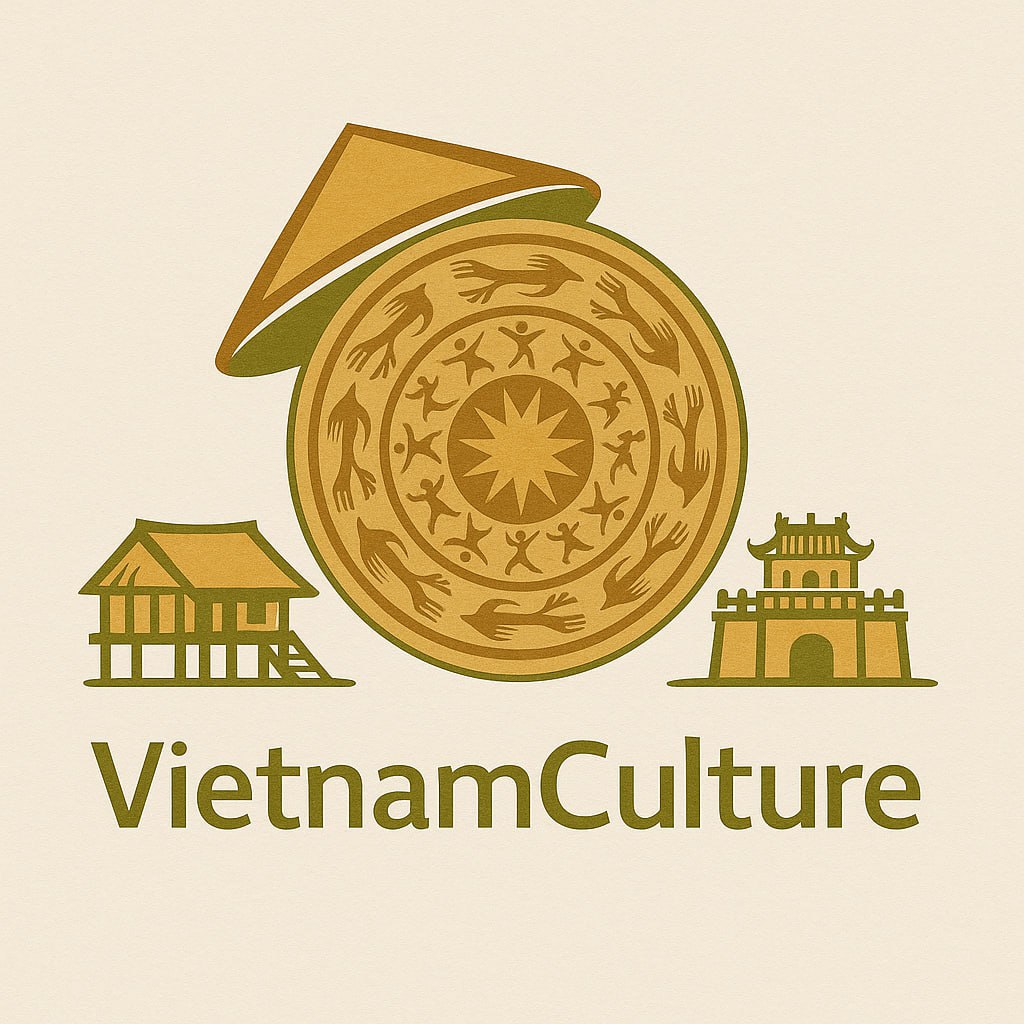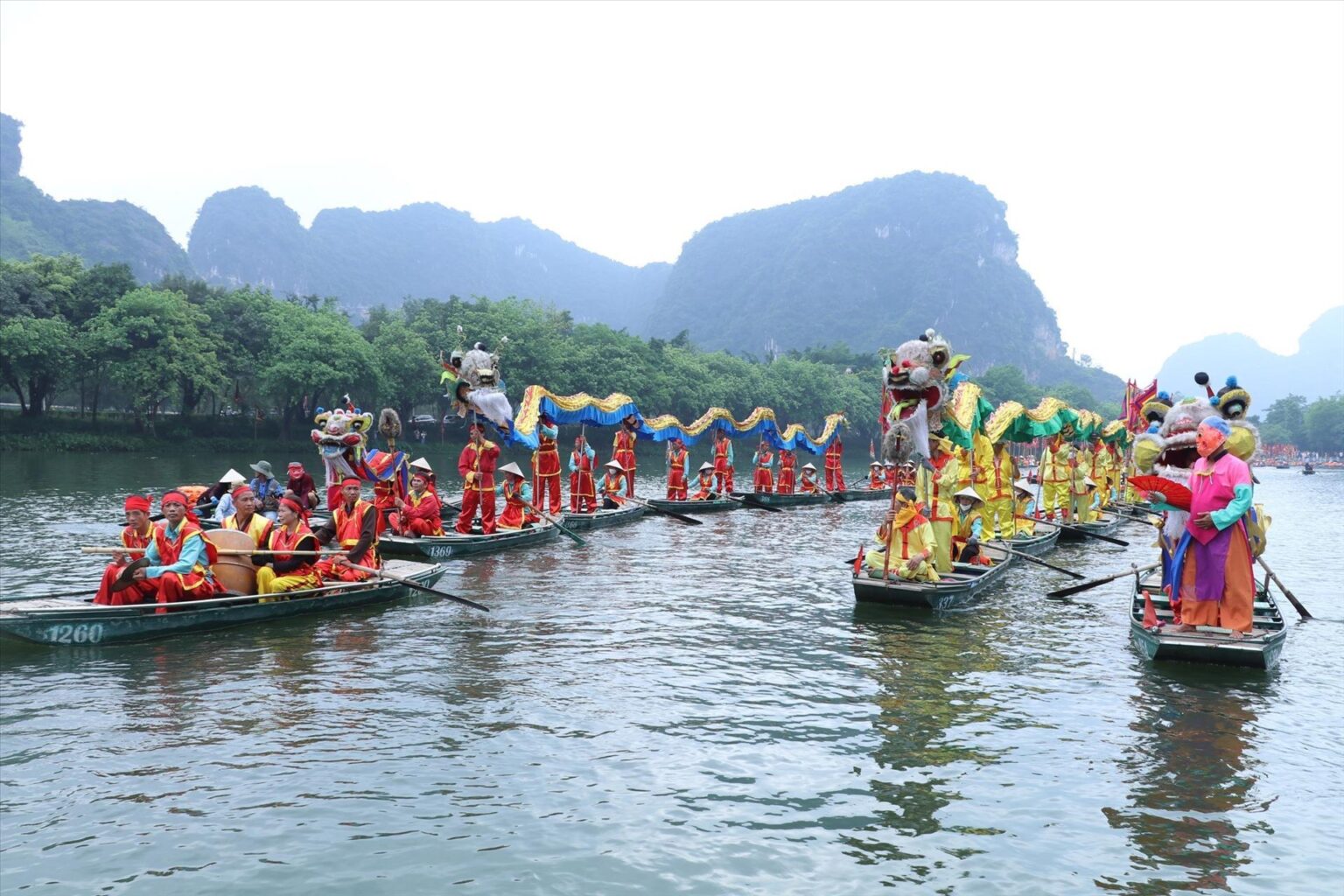Vietnam traditional festivals are an extraordinary window into the spiritual, historical, and communal life of the Vietnamese people. With over 54 ethnic groups and thousands of years of civilization, Vietnam is home to a vast number of festivals, each with its own unique story, purpose, and charm. These festivals are not just occasions for celebration — they are living expressions of the country’s heritage, offering foreign travelers an authentic and immersive cultural experience.
In this guide, we’ll explore what makes these festivals so important, and introduce you to some of the most celebrated Vietnam traditional festivals that you shouldn’t miss when visiting the country.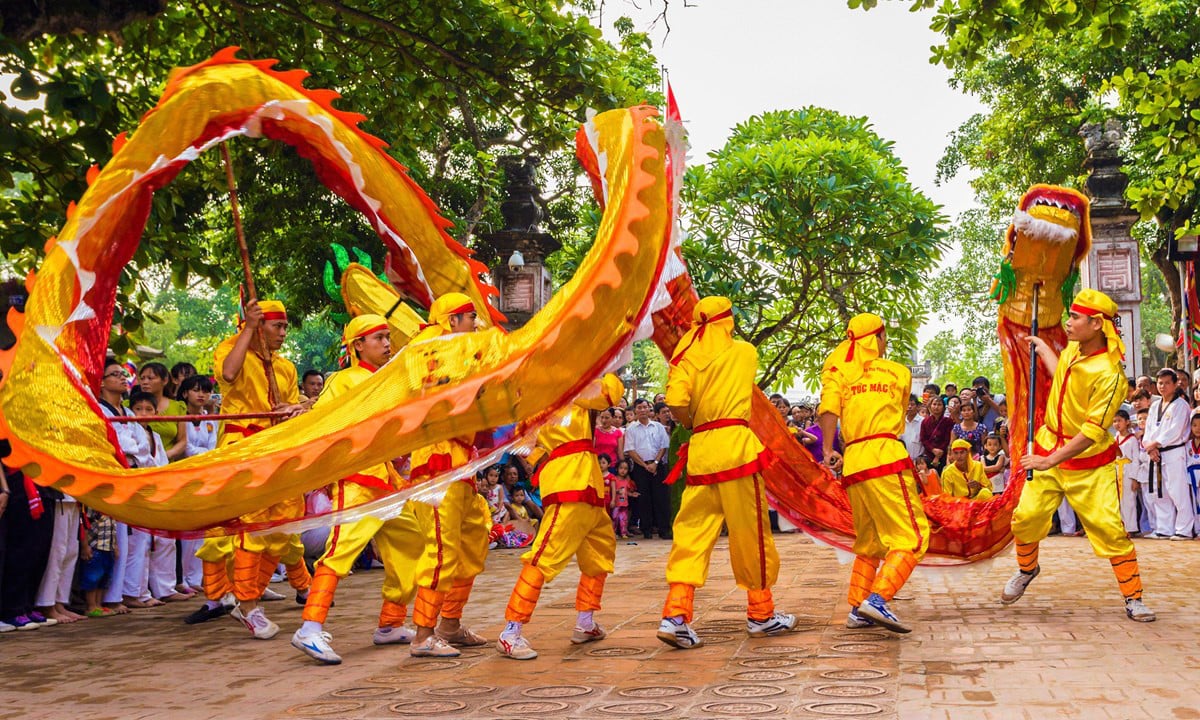
What Are Vietnam Traditional Festivals?
Vietnam traditional festivals are cultural celebrations rooted in centuries-old customs, religious beliefs, agricultural rituals, and folklore. Most of them are held according to the lunar calendar, meaning their dates vary each year based on the moon’s cycle. Typically, a festival consists of two main parts:
- The Lễ (ritual): This part focuses on spiritual ceremonies such as offerings, ancestral worship, and religious prayers.
- The Hội (celebration): The festive side involves games, traditional music, food, dancing, and community participation.
Whether you are in the bustling cities of Hanoi and Ho Chi Minh City or the tranquil countryside, traditional festivals provide a unique opportunity to witness and engage with Vietnam’s vibrant cultural tapestry.
Why Should You Experience Vietnam Traditional Festivals?
Traveling is more than just sightseeing — it’s about connecting with people and understanding cultures. Participating in Vietnam traditional festivals offers several unique benefits:
1. Authentic Cultural Immersion
Festivals give you a glimpse into the soul of Vietnam — how people live, believe, celebrate, and remember their ancestors.
2. Community Connection
Most festivals are community-based events, welcoming both locals and visitors to join in joyful, shared experiences.
3. Visual and Sensory Delight
Colorful costumes, traditional music, folk dances, and local delicacies all come together to create a multi-sensory adventure.
4. Spiritual Reflection
Many festivals are rooted in Buddhism, Taoism, or folk beliefs. For those seeking deeper meaning in their travel, these moments offer peace and introspection.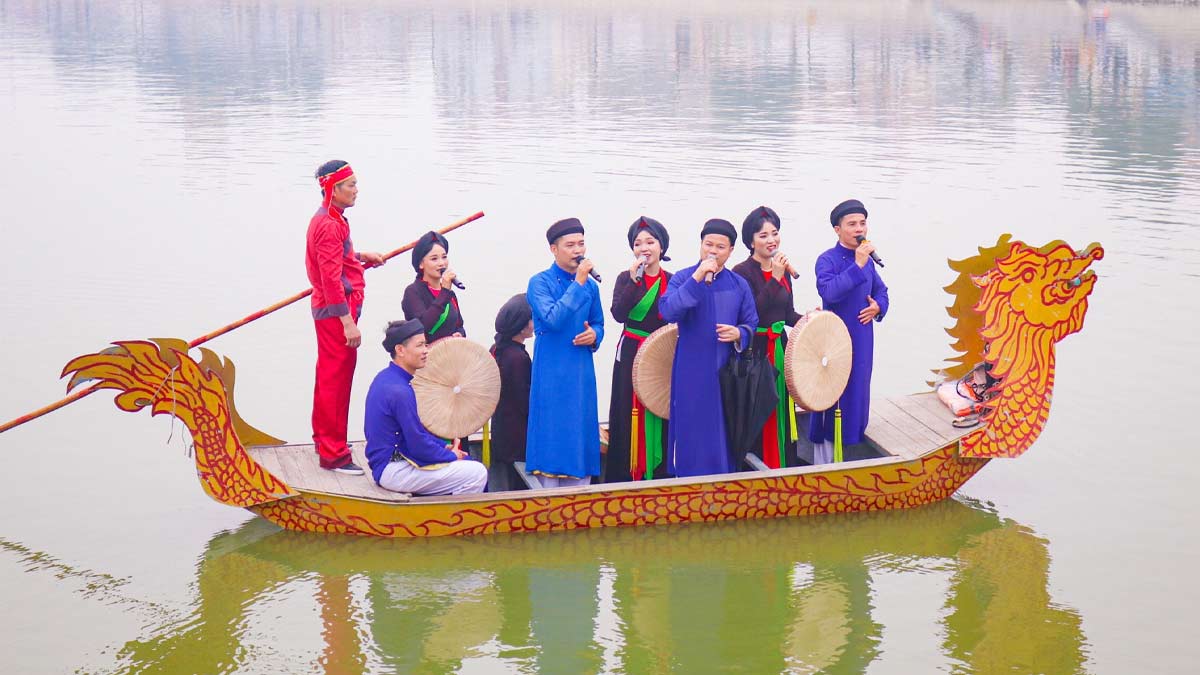
Top 12 Vietnam Traditional Festivals for Foreign Visitors
Here are the most famous and culturally significant Vietnam traditional festivals to add to your travel bucket list:
1. Hung Kings’ Temple Festival (Giỗ Tổ Hùng Vương)
- When: 10th day of the 3rd lunar month
- Where: Phu Tho Province
- Why Go: To honor the legendary Hung Kings, considered the founders of the Vietnamese nation. Visitors can observe solemn rituals and enjoy cultural performances such as folk singing and traditional games.
- Did You Know? Hung Kings worship is recognized by UNESCO as Intangible Cultural Heritage of Humanity.
2. Perfume Pagoda Festival (Lễ hội Chùa Hương)
- When: From the 6th day of the 1st lunar month to the end of the 3rd lunar month
- Where: My Duc District, Hanoi
- What’s Special: A major Buddhist pilgrimage that includes a boat journey through scenic limestone mountains and caves leading to sacred temples. It’s both a spiritual and nature-filled adventure.
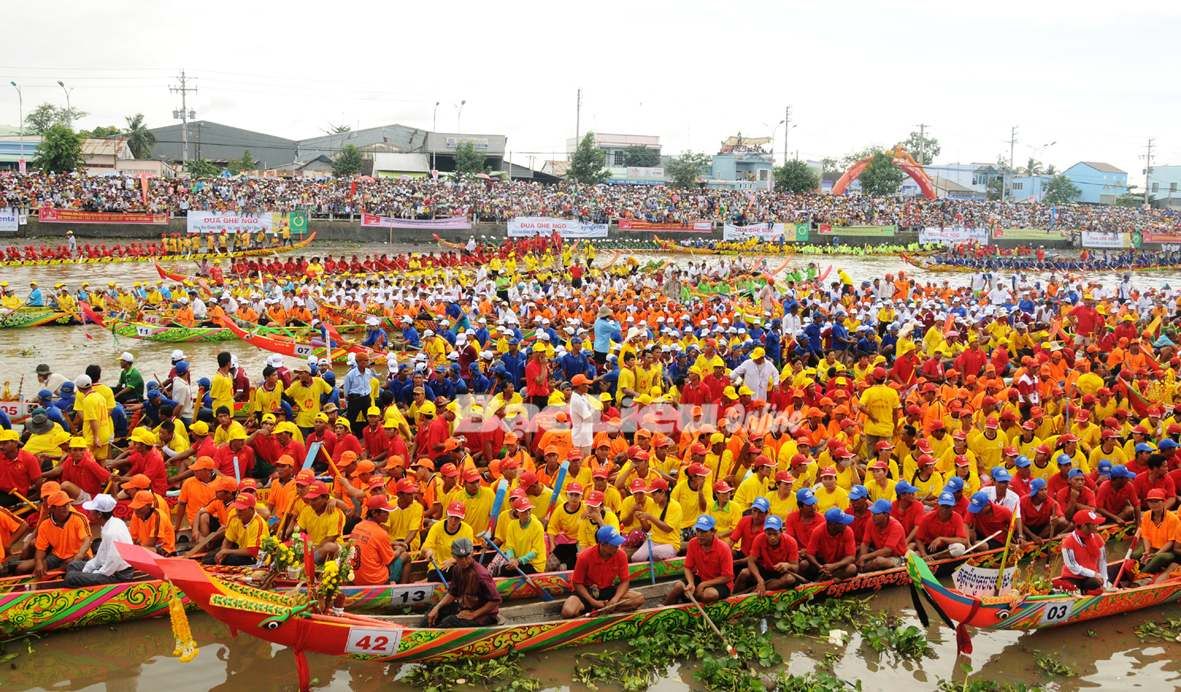
3. Lim Festival (Hội Lim)
- When: 13th day of the 1st lunar month
- Where: Bac Ninh Province
- Highlights: Famous for Quan họ — a traditional antiphonal folk singing style performed by men and women in beautiful costumes. Also includes weaving contests, chess matches, and other folk games.
4. Giong Festival (Hội Gióng)
- When: Multiple locations with different dates; key events are in April (Lunar Calendar)
- Where: Hanoi (Soc Son and Gia Lam Districts)
- What It Commemorates: Celebrates the mythical hero Saint Giong, who fought off foreign invaders. The festival reenacts the battle with mock armies, flags, and war drums.
5. Yen Tu Festival
- When: From the 10th day of the 1st lunar month until the end of the 3rd lunar month
- Where: Quang Ninh Province
- Experience: A spiritual journey to Yen Tu Mountain, home of Vietnam’s Truc Lam Zen Buddhism. Pilgrims climb to the summit to pray at the Bronze Pagoda and seek inner peace.

6. Tháp Bà Ponagar Festival
- When: 20–23rd of the 3rd lunar month
- Where: Nha Trang, Khanh Hoa Province
- Cultural Insight: A Cham ethnic festival honoring the goddess Po Nagar, protector of the land. Visitors can witness Cham dances, traditional music, and rituals reflecting the Cham-Viet cultural fusion.
7. Whale Worship Festival (Lễ hội Nghinh Ông)
- When: 15th of the 8th lunar month
- Where: Can Gio District, Ho Chi Minh City, and other coastal regions
- Why It’s Unique: A maritime festival where fishermen worship the Whale God (Nam Hải), believed to protect seafarers. Includes boat parades and seafood feasts.
8. Lady of the Realm Festival (Lễ hội Bà Chúa Xứ)
- When: 23–27th of the 4th lunar month
- Where: Chau Doc, An Giang Province
- Spiritual Atmosphere: One of southern Vietnam’s biggest spiritual festivals. Pilgrims gather to pray for health, wealth, and fortune. The festival features ceremonial bathing of the goddess’s statue and night processions.
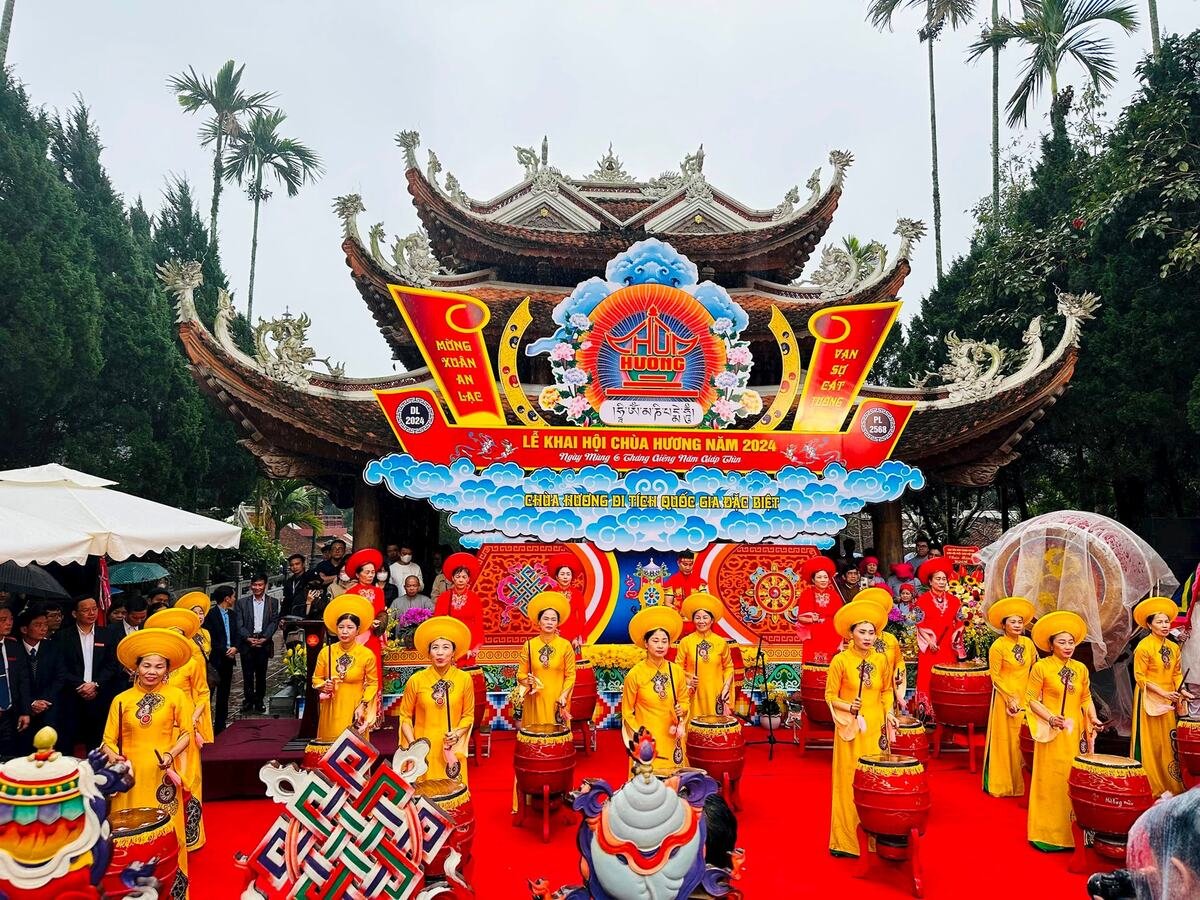
9. Hoa Lu Festival
- When: Early March (Lunar Calendar)
- Where: Ninh Binh Province
- What to Expect: Honors ancient Vietnamese kings Dinh Tien Hoang and Le Dai Hanh. Includes historical reenactments, water processions, martial arts displays, and folk dances.
10. Cau Ngu Festival (Fish Worship Festival)
- When: January to March (Lunar Calendar)
- Where: Coastal villages across Central Vietnam
- Local Belief: Celebrates the Whale Spirit, who protects fishermen. Colorful boat parades, traditional music, and mock fishing contests bring the coastal culture alive.
11. Lồng Tồng Festival (First Plowing Festival)
- When: 8th day of the 1st lunar month
- Where: Tuyen Quang Province and other northern highlands
- Purpose: A celebration by ethnic Tày and Nùng people to pray for good crops. Features rice planting rituals, buffalo processions, and folk games like shuttlecock throwing and tug-of-war.
12. Kate Festival
- When: October (Gregorian Calendar)
- Where: Ninh Thuan and Binh Thuan Provinces
- Who Celebrates: The Cham ethnic group
- Cultural Beauty: A Hindu-inspired celebration with rituals, music, costumes, and traditional Cham dances. It is a vibrant expression of one of Vietnam’s oldest cultures.
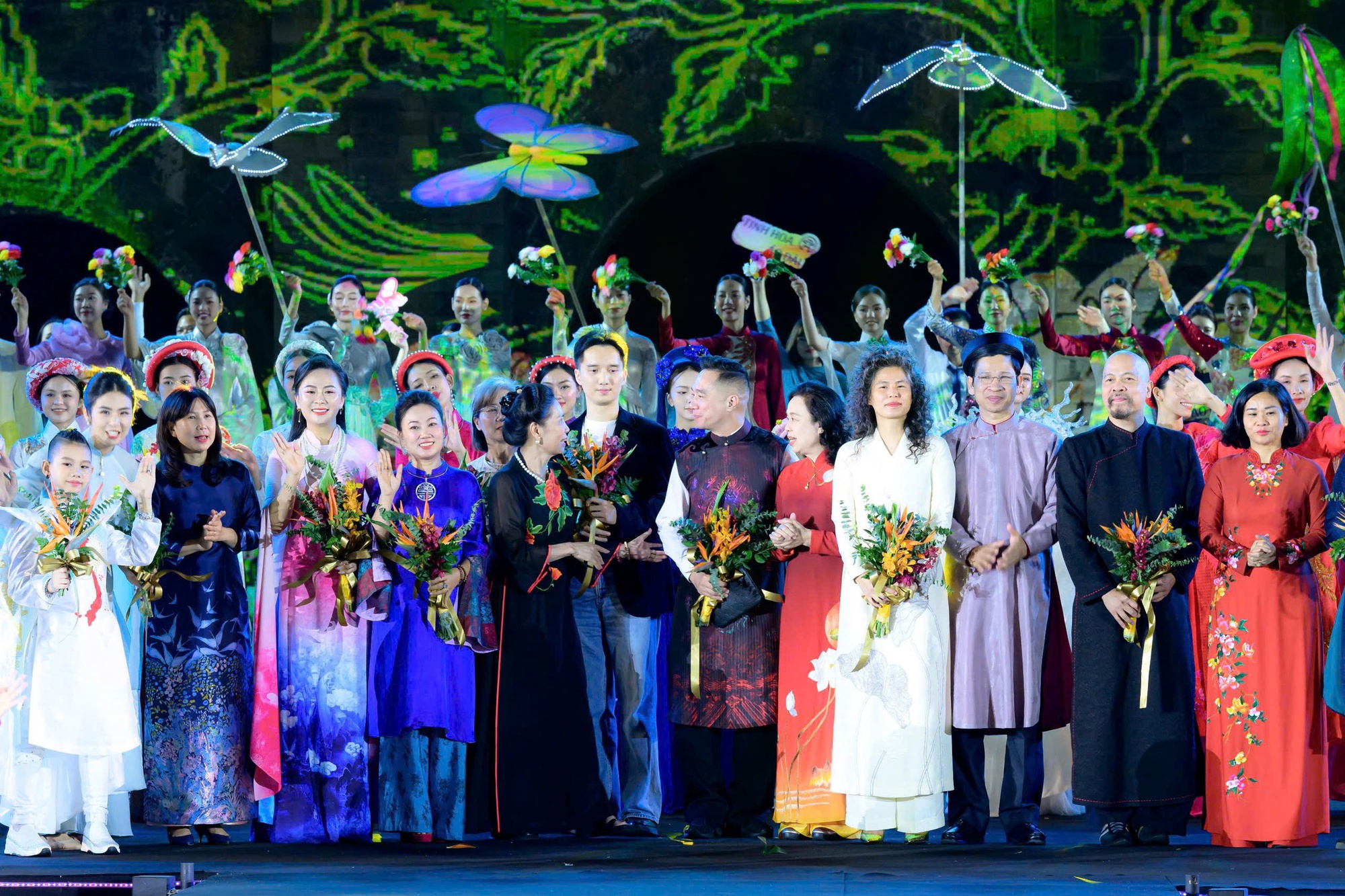
Tips for Enjoying Vietnam Traditional Festivals as a Foreigner
Visiting Vietnam traditional festivals can be incredibly rewarding, but a few tips will help enhance your experience:
✔ Understand the Lunar Calendar
Festival dates vary yearly. Always check the current year’s lunar calendar to plan your trip accordingly.
✔ Dress Respectfully
Many festivals take place in temples and sacred spaces. Modest clothing (covered shoulders and knees) is recommended.
✔ Be an Active Observer
Feel free to participate in games and dance — locals usually welcome foreigners joining the fun.
✔ Hire a Local Guide
To better understand the rituals and symbolism, a local guide can offer invaluable insight.
✔ Be Mindful of Customs
Avoid taking flash photos during ceremonies and be respectful during moments of worship.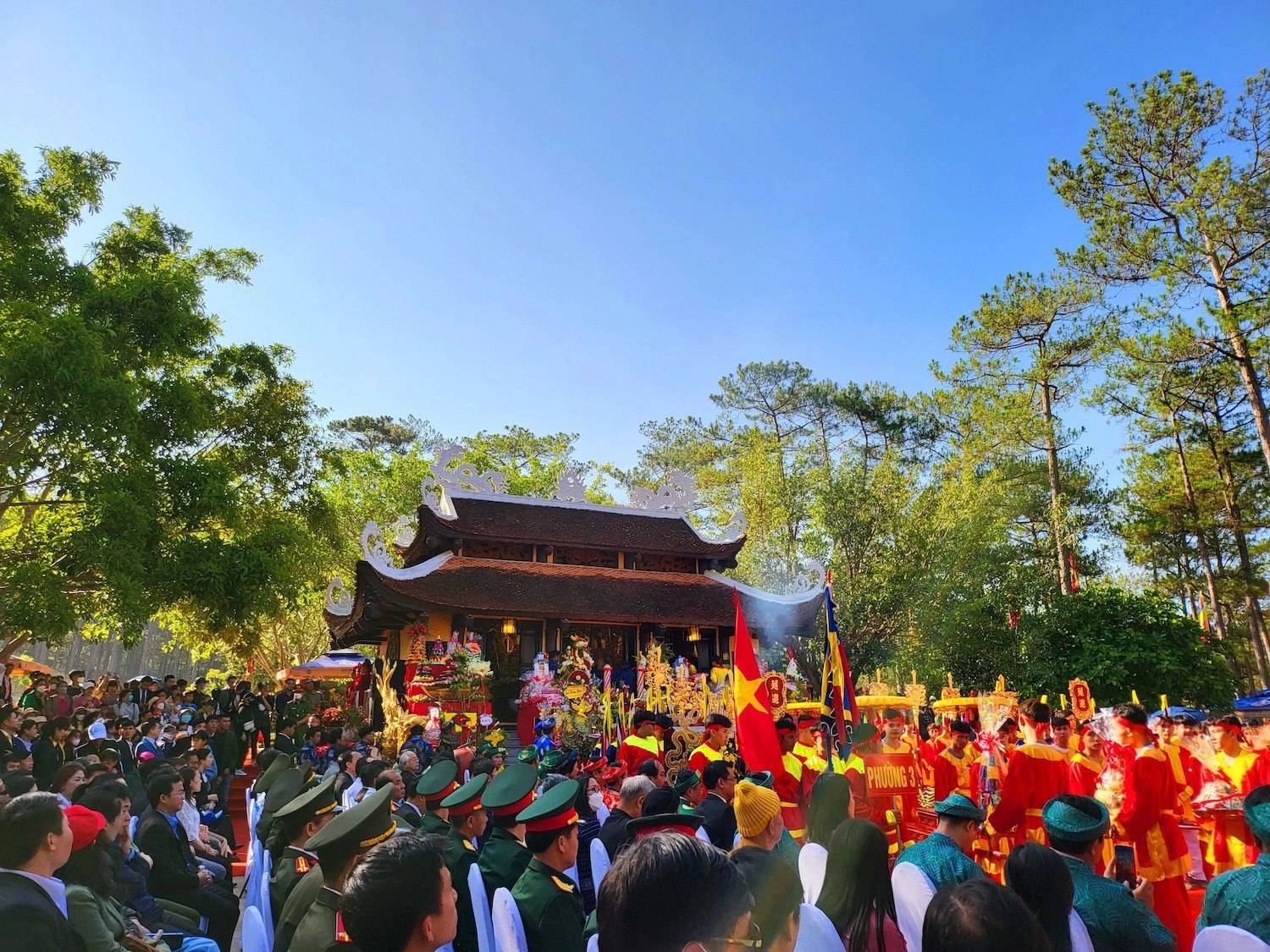
How Festivals Support Cultural Preservation and Tourism
Vietnamese traditional festivals are more than cultural displays — they play a crucial role in:
- Preserving heritage for future generations
- Promoting tourism and local economies
- Educating the youth about their ancestors and national identity
- Fostering unity in communities through shared celebration
Many of these festivals have been recognized as national intangible cultural heritage, and some, like Quan họ singing and the worship of the Hung Kings, are honored globally by UNESCO.
Final Thoughts: A Journey Worth Taking
To truly understand Vietnam, you must feel its spirit — and there’s no better way to do that than by experiencing Vietnam traditional festivals. Whether it’s a rural harvest festival in the mountains or a grand religious ceremony in a city pagoda, each event offers stories, colors, flavors, and emotions that no museum or textbook can provide.
These festivals aren’t staged performances — they are authentic, heartfelt celebrations of a nation’s past, present, and dreams for the future.
So, when planning your next trip to Southeast Asia, don’t just visit Vietnam — live it with Vietnam Culture. Let its traditions, music, flavors, and warmth wrap around you, starting with its festivals.
See more post: Vietnamese philosophy: Exploring the heart of Vietnamese culture
